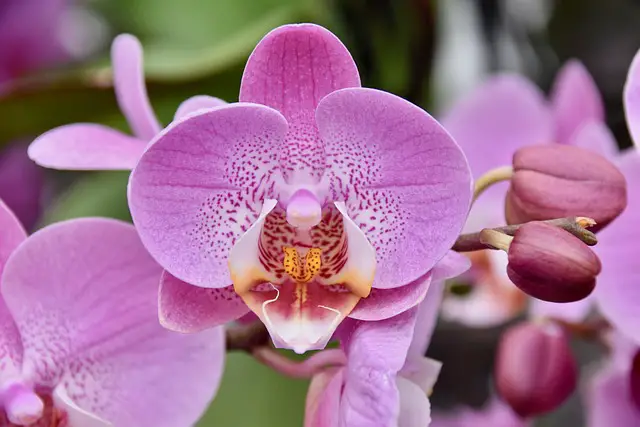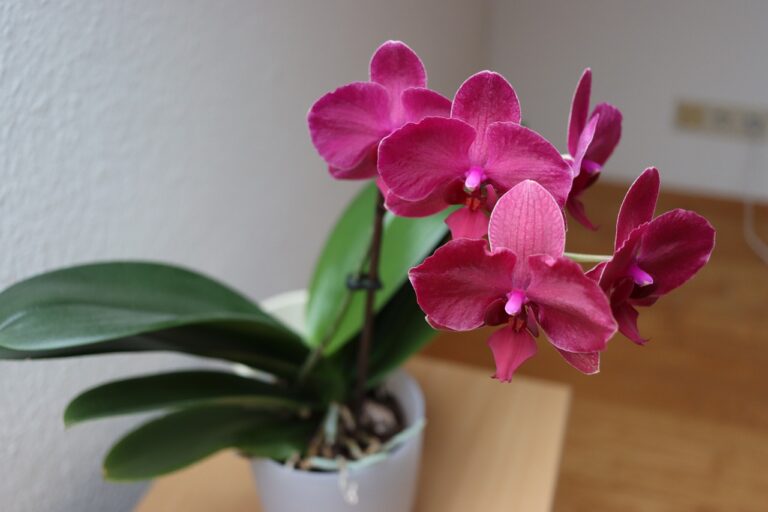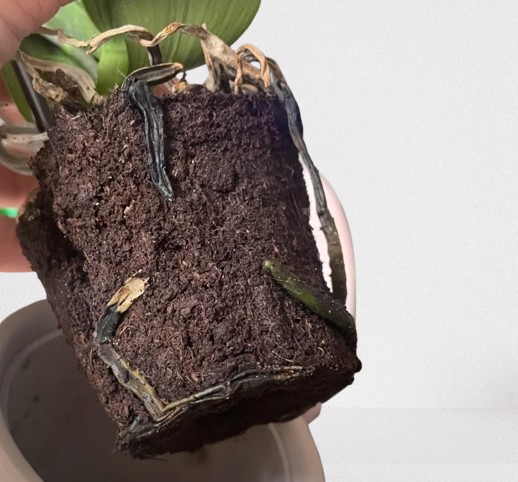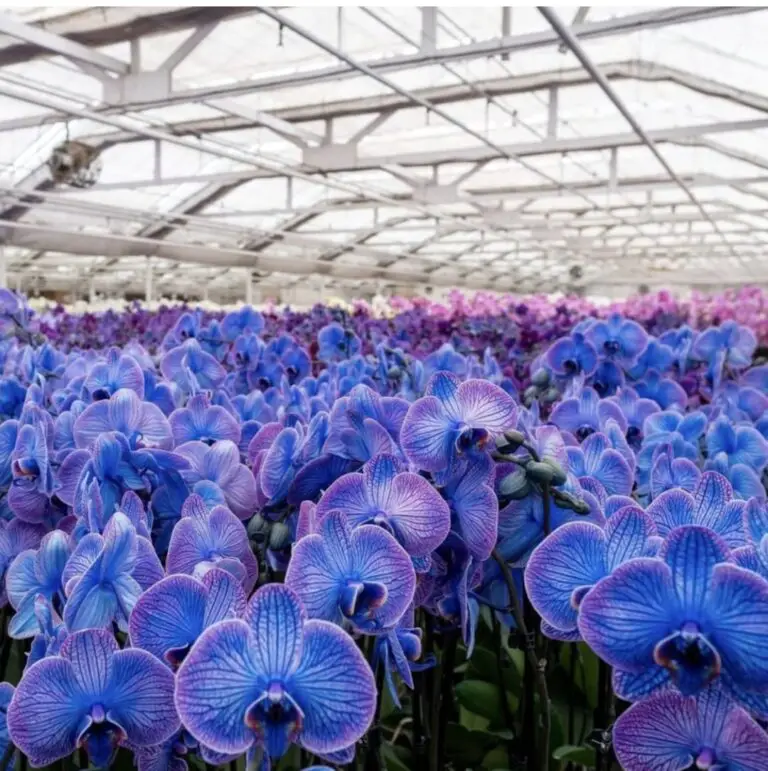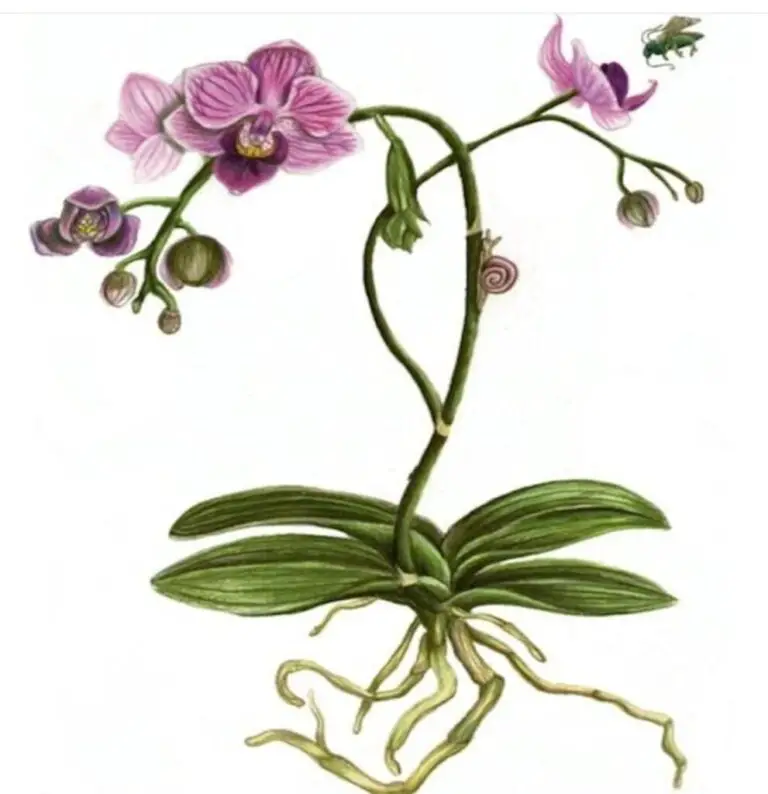Orchid Safety for Cat Owners: Are Orchids Poisonous to Cats?
Orchids are renowned for their exquisite beauty and are a popular choice among plant enthusiasts. Their delicate petals and vibrant colours make them a common sight in homes and gardens. However, for cat owners, the allure of orchids may be met with concern. Are these elegant flowers safe to have around our feline friends? In this blog post, we’ll explore the potential risks of orchids to cats and provide tips on how to keep both your plants and your pets safe.
The Orchid Family
The Orchidaceae family, commonly known as the orchid family, is one of the most diverse and extensive families of flowering plants on Earth. This family encompasses a staggering number of species, estimated to be around 25,000 to 30,000, and more are discovered and classified each year. Orchids are known for their unique and often intricate flowers, making them a favourite among botanists and plant enthusiasts alike.Orchid Safety for Cat Owners: Are Orchids Poisonous to Cats?
Here are some key characteristics and facts about the orchid family:
Global Distribution: Orchids can be found on every continent except Antarctica. They thrive in a wide range of ecosystems, from tropical rainforests to temperate woodlands and even deserts.
Diversity: Orchids exhibit incredible diversity in terms of their size, shape, and color. Some orchids are tiny, while others produce enormous blooms. Their flowers can range from simple and elegant to incredibly complex, often featuring intricate patterns, spots, and vibrant colours.
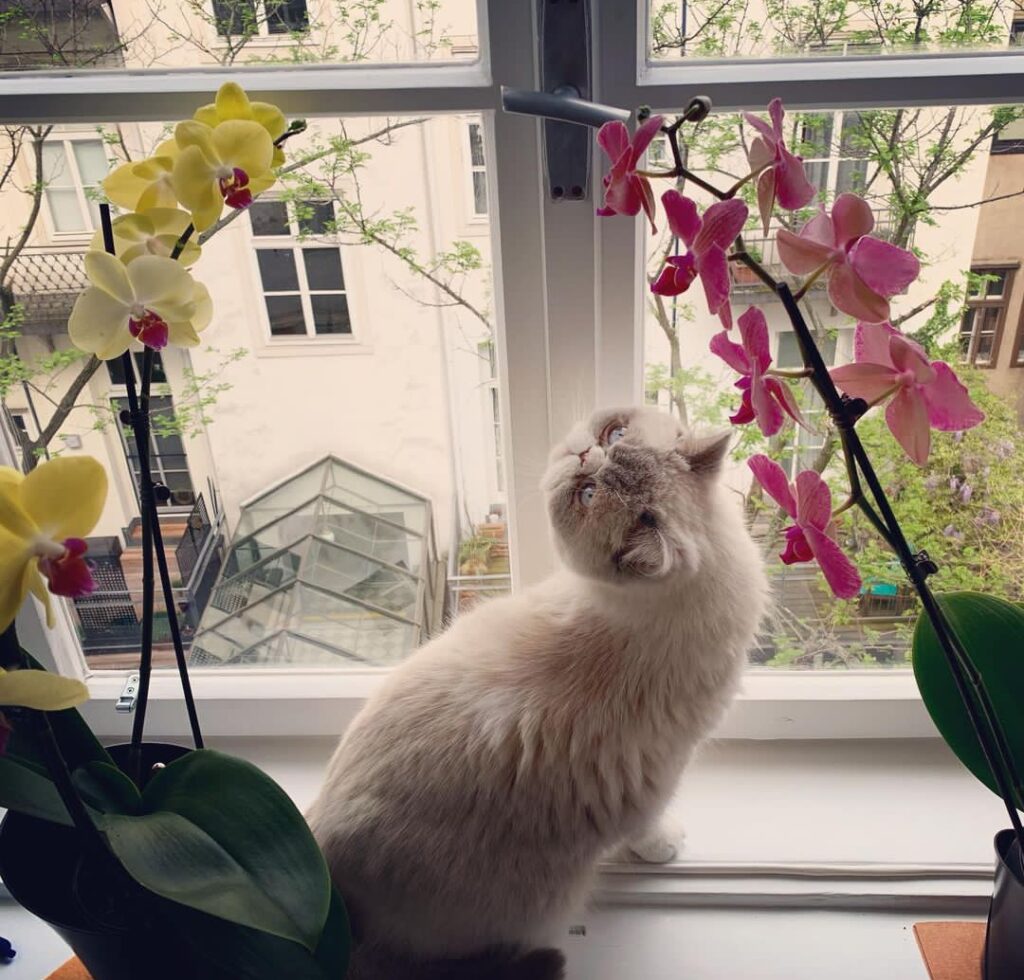
Epiphytic Habit: Many orchid species are epiphytic, which means they grow on other plants, such as trees. They are not parasites; instead, they use the host plant for support and access to light and moisture.
Reproductive Adaptations: Orchids have evolved a wide array of reproductive strategies. Some orchids produce nectar to attract pollinators like bees, butterflies, and birds, while others mimic the appearance and scent of female insects to deceive male pollinators.Orchid Safety for Cat Owners: Are Orchids Poisonous to Cats?
Vanilla: One of the most well-known orchid species is the vanilla orchid (Vanilla planifolia). It is the source of vanilla flavouring, derived from the seed pods (vanilla beans) of the plant.
Endangered Species: Despite their beauty and adaptability, many orchid species are threatened or endangered due to habitat destruction, illegal harvesting for the ornamental plant trade, and climate change.
Cultural Significance: Orchids have cultural significance in many societies. They are often associated with love, beauty, and luxury and have been used in traditional medicine in some cultures.
Horticultural Importance: Orchids are popular choices for ornamental plants. They are commonly grown in homes and greenhouses, and orchid enthusiasts often form orchid societies to share knowledge and promote conservation efforts.
In conclusion, the orchid family is a remarkable group of plants that has fascinated humans for centuries. Their exquisite beauty, diverse adaptations, and global distribution make them a subject of admiration, research, and conservation. Whether you’re a passionate gardener or simply appreciate the elegance of these flowers, orchids have a special place in the world of botany and horticulture.
Are orchids poisonous to cats?
The majority of orchids are not considered poisonous to cats. Most common orchid species, such as the Phalaenopsis (moth orchid) and Dendrobium orchids, are generally safe to have around cats. These orchids are non-toxic and should not cause harm to your cats if they happen to nibble on the leaves or flowers.
However, it’s important to note that there are exceptions. Some rare orchid species may contain compounds that could potentially be harmful to cats if ingested. Additionally, if your orchids have been treated with pesticides or chemicals, those substances could pose a more immediate threat to your pets.
In general, if you’re a cat owner and you have orchids in your home, it’s a good practice to be aware of the specific type of orchid you have and to take precautions to ensure your cat’s safety. Placing orchids out of your cat’s reach and ensuring they are pesticide-free are sensible steps to protect your pets. If you have concerns or suspect your cat has ingested any part of an orchid and is showing signs of illness, it’s advisable to contact your veterinarian for guidance and assistance.
Precautions for Orchid-Loving Cat Owners
For cat owners who love orchids, taking precautions is essential to ensuring the safety and well-being of both your plants and your petsConsider the following warnings and advice:.
Identification: Make sure you can correctly identify the type of orchid you have. Research the specific species to determine whether it’s safe for cats.
Placement: Place your orchids in a location where your cat can’t easily access them. Orchids are more likely to be damaged by curious cats than the other way around. Consider hanging orchids or placing them in high, unreachable spots.
Pesticide-Free: If you’re using pesticides or fertilisers on your orchids, keep them well away from your pets. Ensure that any products you use are labelled as safe for pets.
Supervision: If you’re unsure about your cat’s reaction to your orchids, keep a close eye on their interactions. Cats are known for their curiosity, so it’s better to be cautious and monitor their behaviour.
Training and deterrents: Train your cat to avoid chewing on plants by providing alternative sources of entertainment and scratching, such as catnip toys and scratching posts. Some pet owners also use safe deterrents like bitter apple spray on plants to discourage nibbling.
Consult a Vet: If you suspect your cat has ingested any part of an orchid or is showing signs of illness, contact your veterinarian immediately. It’s better to seek professional advice to ensure your cat’s well-being.
Cat-Friendly Plants: Consider incorporating cat-friendly plants like cat grass or catnip into your home. These can divert your cat’s attention away from your orchids.
Observe Your Cat’s Behaviour: Pay attention to any changes in your cat’s behaviour around your orchids. If you notice excessive interest or attempts to chew on the plants, take preventive measures.
Regular Pruning: Keep your orchids well-maintained. Prune away any damaged or withered parts promptly to minimise the risk of your cat being attracted to them.
Educate family members: Ensure that everyone in your household is aware of the precautions and understands the importance of keeping your cat away from potentially harmful plants.
FAQ
Yes, some orchids can be poisonous to cats.
To protect your orchid from your cat, place it in a location your cat can’t access, or use barriers like shelves or hanging baskets.

